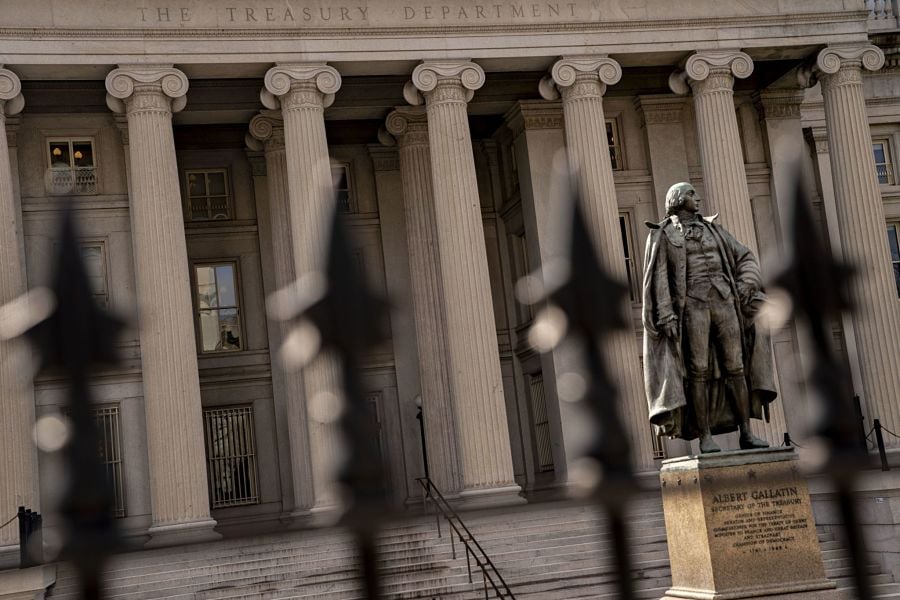

Sen. Elizabeth Warren is again pressing for a retirement account “lost and found” system that would help workers keep track of their savings in plans sponsored by former employers.
Last week the Democratic senator from Massachusetts introduced the bill, the Bipartisan Retirement Savings Lost and Found Act of 2020, which is similar to legislation she and other members of Congress have co-sponsored in the past. The bill tasks the Treasury Department with building an online system to track accounts.
“This means that with the click of a button, any worker can locate all of their former employer-sponsored retirement accounts,” a summary of the bill read. “No more lost accounts — ever.”
Such a system is necessary, as an estimated 30% of people have left account balances in plans sponsored by former employers, according to data from TIAA cited by Warren’s office. That percentage is likely to increase, her office stated, given changing employment trends that are skewing toward contract work, and job tenure becoming shorter.
“Young workers today switch jobs at much higher rates than their older counterparts,” the announcement read. “The median job tenure for workers between 25 and 34 is less than three years, so workers could accumulate many different employer-sponsored retirement accounts throughout their working careers.”
Further, small account balances can erode because of administrative fees, the release noted.
There is already a massive amount of unclaimed money from retirement accounts that can be escheated to states, at an estimated $100 billion, according to data from the Government Accountability Office cited in a summary of the bill.
Participation in the DC savings system has become driven by inaction — workers often are automatically enrolled in plans and defaulted into target-date funds or other investments. Because many workers in many cases do not interact with their accounts, many do little to maintain or update them after leaving an employer.
Under Warren’s bill, employers would more easily be able to transfer those assets into target-date funds, for workers who separate from jobs and do not specify what to do with balances of less than $5,000 in their defined-contribution accounts.
In some cases, funds would be transferred to the Treasury, which would invest the assets in individual retirement accounts on behalf of the owners, unless workers claim the money.
That would also apply to account cash-outs of less than $1,000, when the owners fail to cash their checks, according to Warren’s office.
“The mere fact that the bill got introduced on a bipartisan basis demonstrates the fact that lost and missing participants is a significant issue,” Stephen Saxon, principal at Groom Law Group, wrote in an email. “A Federal registry that works hand-in-hand with the private sector 401(k) system’s 80 million accounts would be a good start in addressing this problem, in my view.”
But, as with its prior iterations, getting the bill passed might not be easy.
“The short answer is that it is very hard to get anything passed,” Saxon wrote. “It takes a lot of time and effort, particularly when there are other things in Washington, like the pandemic, to deal with.”
The bill is co-sponsored by Sen. Steve Daines, R-Mont., and there is a companion House bill co-sponsored by Rep. Suzanne Bonamici, D-Ore., and Jim Banks, R-Ind.
The retirement services industry has supported the measure, with lobbying groups such as the American Benefits Council, the ERISA Industry Committee, the Pension Rights Center and AARP advocating for it, Warren’s office noted.

The 25-year industry veteran previously in charge of the Wall Street bank's advisor recruitment efforts is now fulfilling a similar role at a rival firm.

Former Northwestern Mutual advisors join firm for independence.

Executives from LPL Financial, Cresset Partners hired for key roles.

Geopolitical tension has been managed well by the markets.

December cut is still a possiblity.
Streamline your outreach with Aidentified's AI-driven solutions
This season’s market volatility: Positioning for rate relief, income growth and the AI rebound
